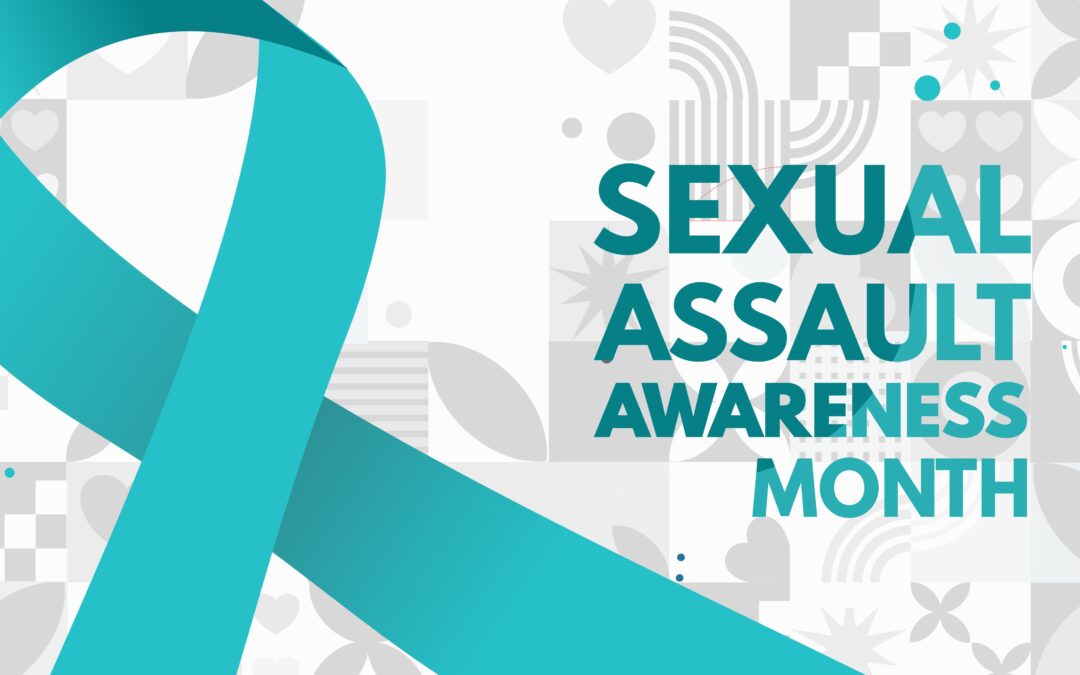Sexual Assault Awareness Month (SAAM) is a critical time for raising awareness about the prevalence and impact of sexual violence in our society. Beyond the immediate trauma inflicted, sexual assault can have far-reaching consequences that extend into mental health and substance abuse realms. In this blog post, we will delve into the complex connections between sexual assault, depression, suicide, and addiction, shedding light on the profound impact of trauma and the importance of support and resources for survivors.
Understanding Sexual Assault and Its Impact:
Sexual assault is a traumatic experience that involves unwanted sexual contact or behavior inflicted upon an individual without their consent. It can encompass a range of acts, including rape, molestation, harassment, and coercion.
- Immediate Trauma:
- Survivors of sexual assault may experience a wide range of emotions in the immediate aftermath, including shock, fear, anger, shame, and guilt.
- The trauma of sexual assault can have profound physical, emotional, and psychological effects on survivors, impacting their sense of safety, trust, and well-being.
- Long-Term Consequences:
- Sexual assault can leave lasting scars that affect survivors’ mental health, relationships, and overall quality of life.
- Survivors may struggle with a range of issues, including post-traumatic stress disorder (PTSD), depression, anxiety, substance abuse, self-harm, and suicidal ideation.
The Link Between Sexual Assault, Depression, and Suicide:
Sexual assault survivors are at increased risk of experiencing depression and suicidal ideation as a result of the trauma they have endured.
- Depression:
- Depression is a common and often debilitating mental health condition that can affect survivors of sexual assault.
- Survivors may experience symptoms such as persistent sadness, hopelessness, worthlessness, loss of interest or pleasure in activities, changes in appetite or sleep patterns, and difficulty concentrating or making decisions.
- Suicidal Ideation:
- The trauma of sexual assault can significantly increase the risk of suicidal ideation and suicide attempts among survivors.
- Survivors may struggle with feelings of shame, guilt, self-blame, and worthlessness, leading to thoughts of self-harm or suicide as a means of escape from their pain and suffering.
The Intersection of Sexual Assault and Addiction:
Sexual assault survivors may turn to substance abuse as a way of coping with the trauma and numbing their emotional pain.
- Self-Medication:
- Survivors of sexual assault may turn to drugs or alcohol as a way of self-medicating their symptoms of depression, anxiety, and PTSD.
- Substance abuse may provide temporary relief from emotional distress, but it can quickly spiral out of control and lead to addiction and other negative consequences.
- Escapism:
- Substance abuse may serve as a form of escapism for survivors, allowing them to temporarily numb their pain and dissociate from the traumatic memories of their assault.
- However, reliance on drugs or alcohol as a coping mechanism can exacerbate mental health issues, increase the risk of re-victimization, and hinder the healing process.
Supporting Survivors and Promoting Healing:
It’s essential to provide survivors of sexual assault with access to comprehensive support and resources to help them heal and recover from their trauma.
- Trauma-Informed Therapy:
- Trauma-informed therapy focuses on addressing the underlying trauma of sexual assault and its impact on survivors’ mental health and well-being.
- Therapists use evidence-based approaches such as cognitive-behavioral therapy (CBT), eye movement desensitization and reprocessing (EMDR), and dialectical behavior therapy (DBT) to help survivors process their trauma, develop coping skills, and rebuild their lives.
- Peer Support and Advocacy:
- Peer support groups and survivor advocacy organizations provide survivors with a sense of community, validation, and empowerment.
- Connecting with other survivors who have shared similar experiences can reduce feelings of isolation and shame, foster healing and resilience, and promote a sense of solidarity and empowerment.
- Holistic Healing:
- Holistic approaches to healing, such as mindfulness practices, yoga, art therapy, and meditation, can complement traditional therapy and support survivors’ overall well-being.
- These practices can help survivors reconnect with their bodies, manage stress, regulate emotions, and cultivate a sense of self-compassion and resilience.
Conclusion:
Sexual assault is a traumatic experience that can have devastating consequences on survivors’ mental health, including depression, suicidal ideation, and addiction. By raising awareness about the intersection of sexual assault, depression, suicide, and addiction, we can better understand the challenges faced by survivors and the importance of providing comprehensive support and resources to help them heal and recover. Through trauma-informed therapy, peer support, advocacy, and holistic healing approaches, we can empower survivors to reclaim their lives, rebuild their sense of self-worth, and move forward on their journey toward healing and recovery.

